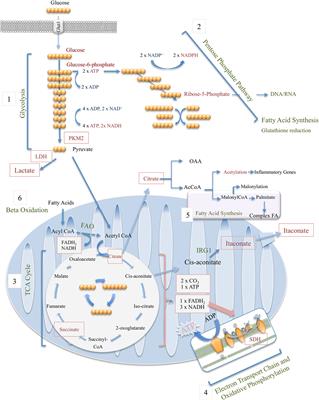EDITORIAL
Published on 15 Nov 2018
Editorial: Metabolism and Immune Tolerance
doi 10.3389/fimmu.2018.02678
- 2,494 views
- 3 citations
31k
Total downloads
124k
Total views and downloads
EDITORIAL
Published on 15 Nov 2018
REVIEW
Published on 25 Jun 2018

REVIEW
Published on 16 May 2018

ORIGINAL RESEARCH
Published on 01 Mar 2018

REVIEW
Published on 19 Feb 2018

MINI REVIEW
Published on 09 Feb 2018

REVIEW
Published on 08 Jan 2018

REVIEW
Published on 11 Dec 2017

ORIGINAL RESEARCH
Published on 09 Nov 2017

REVIEW
Published on 21 Jul 2017
